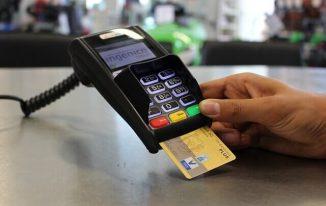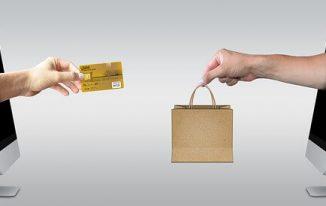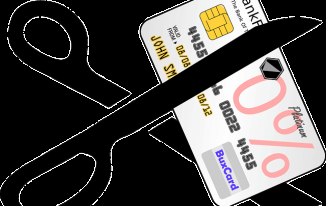Want the tips we use to make money from home?
Sign me up to receive more helpful tips about making more money for yourself, saving a lot of money to get rich and frugal living tips. Feeling inspired and would love more blog posts like these
Let's face it- no one takes out a credit card with the intent of maxing it out. We all have a set budget and a spending limit we really don't want to pass as soon as the card first comes in the mail.
But what is considered maxing out a credit card?
Eventually, one bill will not be paid at the end of the month, and might turn into another, this time bigger, and another. The next thing you know, you've hit your credit card limit.
If you've been in a credit card debt, you'd find it stupidly amazing that the balance can get so high very fast. You probably know how quickly this thing can pile up.
And since it happens so fast, it's very important that you know how does maxing out a credit card affect your credit score- and the full consequences that can follow if you don't.
And since it can happen so fast, it's imperative to understand how to prevent it - and the full scope of consequences that can follow if you don't.
While paying your bills on time with a positive attitude influences your credit score, it's not the only thing that matters. You might or might not be late on payment, and even pay off each balance each month, but just by carrying high balances on your credit cards on a regular basis, you can be affecting your credit score.
Ready to jump in? Let's get to it.
How does maxing out a credit card affect your credit score

The answer is quite simple, right? Maxing out your credit card simply means you just hit the credit limit and can't use your card until you pay the balance down.
Oh, I wish it was really that simple but it really is not. In fact, maxing out a credit card has bigger implications than it may present at first. Here's a list of things that is bound to happen if you hit your credit card limit:
- Your credit score will take a hit
- You cannot use your credit card until you pay the balance down
- Minimum payments may become unmanageable
- The credit card interest combined with the increased balance may make paying your credit card off (or even down) much harder to do.
Picture this: Allowing the balance on your credit card to increase to the point at which it's maxing out is similar to a whirlwind turning into a level 3 hurricane- too disastrous.
At first, the whirlwind seems small enough to control. But as it picks up speed, it increases in size, gains momentum, and becomes harder and harder to keep up with.
The momentum and speed, size will turn that tiny whirlwind into an unwieldy and dangerous tornado.
Here are more details about what can happen next:
How does maxing out a credit card affect your credit score? Well, your score doesn't hit overnight unless you max out the card overnight. Instead, your score gradually decrease as your balance increases.
Why and how does this happen?
It happens because your credit card utilization (which is the amount of debt you owe in comparison to the amount of credit that's available to you) makes a big mess of your credit score.
Your credit score begins to suffer as soon as the number goes up by 30%.
Once you max out your credit card, you really cannot use it any further until you pay down your balance. This can be really painful especially in times of need.
It gets interesting:
Do you know that if you are not able to make a purchase without your credit card, then you won't have the money to pay down the balance either?
Do you now see how deadly this can get?
In the right hands and right time, credit cards are a tool that can come in handy in cases of emergencies. Don't lose the tool because your balance got expended to the maximum. Plus, your balance picks up momentum as it grows- the larger balance is multiplied by the interest rate.
For example: If you have $20,000 in credit card debt, it's not because you spent $20,000 on goods. What is it then? It's because you bought an amount over time that multiplied to $20,000 with helping hands from high interest rates.
- Your Minimum Payments Become Unmanageable
Each time your balance increases, your minimum payment increases too.
It's very common to hear people complain of their payments growing to a point at which they can't afford to pay them anymore. This is yet another reason why you should keep check of your balance.
- It Gets Harder than Ever to Pay off Your Card
The interests' rates are generally brutal. How? Any amount of money that you fail to pay at the end of a billing cycle gets charged interest, often to a freaking 20% interest and up..
That means that until you pay it off, your balance will grow by that 20% every month. The effect of this on you are increased interest charges which increases your overall debt, and makes your credit card debt payof f even harder than it was.
In the end, you'll end up paying for a lot more than you bought, so ALWAYS STOP the MOMENTUM before it BUILDS too FAST- never forget this!
How to Make Sure You Don't Max Out Your Credit Card
Now that you have the answer to the question- how does maxing out a credit card affect your credit? Let us look at the best practices you can instil to ensure you don't max your credit card especially if you're on a tight budget.
Here is a list of things you can put in place to avoid getting to that maxed out card level!
I know credit cards can prove to be quite useful in an emergency, I would advise doing using one. Want to know why? Because an emergency fund (which is a certain amount of cash saved up and put aside in a separate savings account) is way better.
The money in such accounts is not meant to be tampered with for accidental budget overages, but instead for real emergencies (like car breakdowns).
If you succeed in creating a solid emergency fund over time, you'll have a system that helps you not rely on your credit card to aid you in such emergencies.
That will help you pay for emergencies interest-free and provide you with a peace of mind.
- Create a Habit of Paying Off Your Card As Soon As You Use It
The best way to ensure that you don't max out your credit card and incur interests is to pay the balance the same day you make a purchase.
Thanks to the 21 st century mobile banking, this is possible. You can do so as soon as the purchase is made, regardless of whatever place you are or live in. This is an awesome habit because there's no way to build up the balance faster than you can pay it accidentally- and you can't forget to make the payment in time for the current billing cycle to end.
You will also go to bed nicely knowing that your balance isn't building up while also practicing sticking to your budget (since you won't be able to spend more than what you can pay atm (at the moment).
- Only Use Your Credit Card for Emergencies
If you fail to create the habit of paying off your card as soon as you use it or didn't try at all, you might want to consider using your credit card emergencies.
That way you won't automatically suffer re-payment at a high rate.
Keep that credit card for emergency use and, when you use it, create a plan that ensures you pay off the balance before it gets too high.
What To Do if Your Card is Already MaxedIf you're reading this and your card you maxed out your card already, don't fear or lose hope. There are a few steps to follow that allow you rein it in and pay off your debt.
The best way to pay off debt is to decrease the interest you're paying on it as much as possible. Balance transfers are effective ways to do that.
A balance transfer credit card is a credit card that often comes with a promotional rate of 0% or 3% for somewhere between 6 and 12 months and is obtained purely for the purpose of paying off your other card.
Some providers charge you a balance transfer fee (often around 3%) but after that there should be no more fees until the end of the promotional interest rate.
Some charge a balance transfer fee (often around 3%) but after that there should be no more fees until the promotional interest rate expires.
The surest way to use a balance transfer card is to find one that offers the longest the longest 0% APR intro period with no balance transfer fee.
Then make sure you don't make purchase anything on that card, as that can alter obliquely the interest rates from then on (since the purchase APR is usually higher).
Please note: When the promotional period is up, you could you might get charged retroactively on your balance at the new, higher interest rate.
You can either create a plan to pay it off first or get a new balance transfer before that happens.
How to create a plan?
Simply divide the balance by the amount of months you have before the rate goes up.
The figure gotten is the amount you should pay each month to have the card paid off before then.
Now, if this goal isn't reachable, get as close as you can and do another balance transfer when the time comes.
- Consider an Unsecured Loan to Pay Off the Card
Another great solution to decreasing your interest rate is to seek a loan, which (in most cases) will come at a much lower rate than your current credit card.
It might be tempting to do a secured loan (like an home equity loan that would put your home up as collateral for your credit card) but that is a really risky move and should be avoided.
Instead, you should seek out an unsecured loan, such as those that can be found through peer-to-peer lenders.
You should be offered a fixed payoff period and a single-digit interest rate you're approved for a loan. That will put you on a payoff plan that will work a lot faster than minimum payments on your credit card.
You will also keep enjoying life knowing when the debt will be paid off, as long as you don't miss a monthly payment.
- Always Remain Vigilant of Your Credit Card Balance

Now you know how does maxing out a credit card affect your credit card and this is why it's very beneficial to be vigilant of your balance.
Avoid making the mistake of assuming you know how much you're spending without looking at the balance to be really sure. You can check your balance online as frequent as you want, so take advantage of that!.
Keep an eye on each transaction to make sure they do not have any errors or are fraudulen t- and to see if there are any areas you could improve your spending limits.
Additionally, keep an eye out so you can stop spending for the month, if your balance looks painful to look at or is growing beyond your control.
Ignoring your balances and statements when you fear them will only make matters worse.
So stay on top and return here to read how does maxing out a credit card affect your credit card whenever you need motivation or helpful tips.


